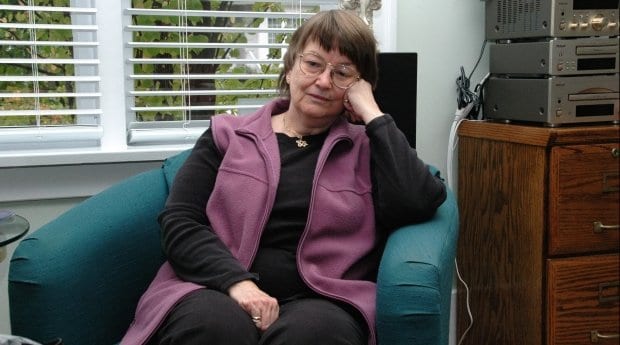“I do not fear dying. What I fear is the quality of my last few weeks, months or years of life,” Gayle Roberts says.
Roberts, 74, attended a town hall in Vancouver Jan 28 for LGBT seniors called Fostering End of Life Conversations, Care and Community, after participating in a focus group last fall on end-of-life planning.
The town hall was an opportunity for principal investigator Brian de Vries, along with research assistants Patrick Aubert and Robert Beringer, to share findings from the focus groups, as well as a chance for participants to share their experiences with end-of-life planning.
“One of the things that came up is that aging is a common concern,” Aubert says. “The reality is, we don’t all age the same. We have different needs.”
Bradford McIntyre’s needs centre on being HIV-positive. For him, chronic medical concerns, medication interactions and a renewed fear of illnesses associated with aging are added to anxieties he already shares with other aging LGBT people.
De Vries says the legacy of HIV dominated the gay male focus groups. “It’s part of our community dialogue, our collective experience. It’s in us in a way that’s not true of other groups, and I think that becomes a limiting factor as how we, as gay men especially, seek support,” he says. “I worry, and I don’t think we’ve studied this, but I think as we approach later-in-life, it’s like a retraumatizing of our earlier experiences with HIV.”
In one focus group, he says, a participant said poignantly, “I’m out of practice with my grief.”
Christine Waymark, whose partner, Robin Rennie, died Jan 4, carries her own list of concerns that grew out of struggling to find her partner appropriate care. “Who will be there for me, how do I manage alone, how can I stay in my home, what are my options if I don’t?” she asks.
“The world is still heteronormative, and I don’t want to live out my last years in that atmosphere,” she says.
A key part of the town hall was the introduction of an LGBT End-of-Life Resource Inventory specifically for British Columbia, which lists services that are either LGBT-run or LGBT-friendly.
“With healthcare, with accessing health services, we know that if they’re not LGBT-friendly, people don’t go as often, so they don’t get care, and that transfers over to end-of-life,” Beringer says.
The LGBT End-of-Life Resource Inventory will be a key feature of a future website created in conjunction with the study, the researchers say.
“It’s not just meant to be an information repository; we also wanted to have the website itself be a venue for such dialogue,” de Vries says. “It’s meant to be the virtual equivalent of the town hall, such that people can find this site and from that move into directions that are meaningful for them with the knowledge that we’re able to share.”
De Vries says he repeatedly heard from participants that more focus groups are needed. “I think what they’re really saying is, ‘We need to keep talking about this; we need those venues,’” he says.
De Vries hopes the website will contain interactive features, such as message boards or chatrooms, which can facilitate further conversations between people with common needs and concerns.

 Why you can trust Xtra
Why you can trust Xtra


